Part two of this review is here
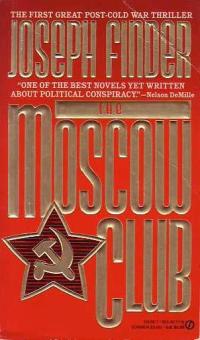
The first great post-Cold War thriller. So proclaims the front-cover strap line on this early paperback edition of Joseph Finder’s The Moscow Club. For once, the blurb has substance.
The Moscow Club is a great thriller. And it is post-Cold War. Though handily in terms of giving an undeserved sense of planning to the Russian in Fiction blog, its plot reaches back into the Soviet past, providing a neat link from our preceding mini-splurge reviewing novels on the death of Stalin.
According to the publicity blurb, The Moscow Club was named by Publishers Weekly as one of the ten best spy thrillers of all time. That might be pushing it. But Finder’s first novel might well nudge the top ten of the 100 books this blog will review, providing as it does almost 600 pages worth of densely plotted, action-filled, twist-on-twist thriller.
Published in February 1991, The Moscow Club sits in that awkward space after the collapse of Communism in Eastern Europe but before the end of the Soviet system. Gorbachev is still in charge in Moscow, and threatened by a well organised coup from within the Soviet leadership.
In the real world, half a year after the novel’s publication, an appallingly organised coup against Gorbachev effectively saw both the Soviet President and the coup-plotters lose power, as the Soviet Union disintegrated within a matter of months.
Both Finder’s fictional coup plotters, and the real coup plotters, were hard-line Soviet figures
with an unshakeable devotion to the Soviet empire, which was, it seemed, crumbling day by day
The Moscow Club, p. 27
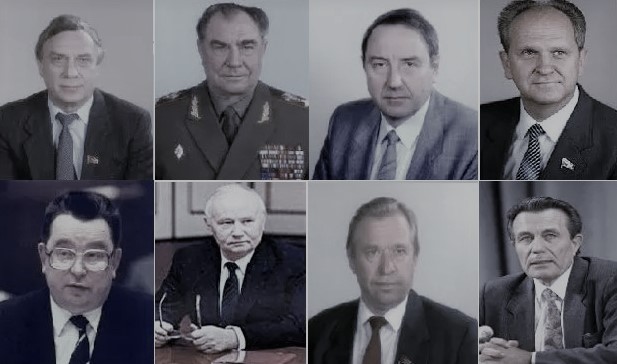
Joseph Finder began his stellar career as a thriller writer by focusing on what he knew best. His background was in US academia (Yale and Harvard) and Soviet affairs; he lived in many of the book’s locations; and he had a particular specialism in relations between US businessmen and the Soviet regime.
In 1983 Finder had published a non-fiction work Red Carpet, which revealed much about Armand Hammer (1898-1990), an American businessman best known for his links with the Soviet Union.
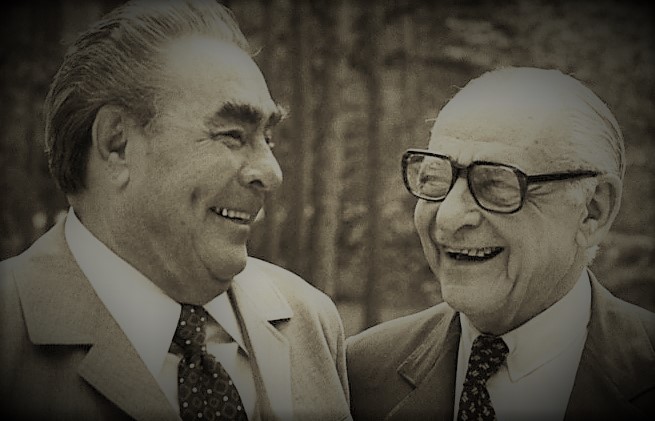
There are hints that characters and events in The Moscow Club are based on what its author learnt writing and researching Red Carpet. Quite how exact the fact and fiction match is, however, remains unclear. Suffice to say that there are parallels between a central character in The Moscow Club, the elderly patrician businessman Winthrop Lehman, and Armand Hammer. Both met Lenin and Stalin, both started off in business in the Soviet Union in the 1920s and made their fortunes, becoming part of the US establishment and existing in the milieu around business and international politics. Both also had children by Russian mothers.
Throughout The Moscow Club there is an air of detail and an impressive, sweeping overview of Soviet and Russian affairs, including history and the contemporary politics of the late Soviet period. For example, an element of the novel’s plot is a series of terrorist bombs being set off in Moscow. Sadly an all too familiar occurrence in the immediate post-Soviet era, such events were far rarer at the time of the novel’s publication. But Finder makes reference to the shocking bombing of the Moscow metro in January 1977, an event almost forgotten in the West at least.
The historical awareness shown in The Moscow Club goes beyond many a Russia-in-fiction thriller. Whereas there are a number of novels about the Soviet Union around the death of Stalin in 1953 (The Kremlin Contract by James Barwick, Red Omega by John Kruse, Archangel by Robert Harris); or about historians with access to secret documents (Archangel again, The Trinity Six by Charles Cumming); or about the late Gorbachev years (Warsaw Concerto by Dennis Jones, Saviour’s Gate by Tim Sebastian) — The Moscow Club combines all of these.
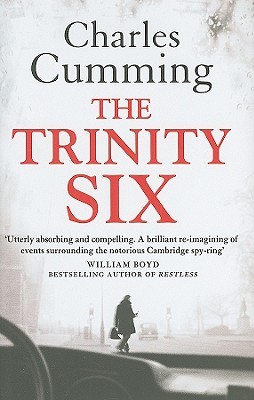
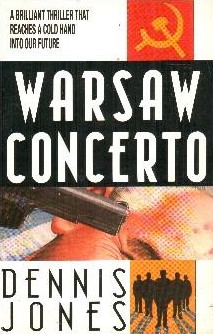
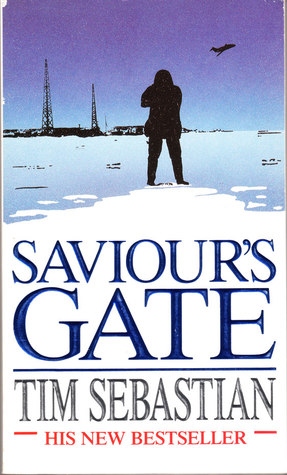
Its plot is complex, but Finder wisely leavens such complexity with some of the staples of the genre. Perhaps he even over-leavens the novel, particular with chase sequences which recur, in the US (including a gripping lift-shaft scene), in Canada, in the sewers of Paris, and —in a precursor of the superb Moscow car chase in The Bourne Supremacy movie— along the streets of Moscow and into a tunnel. There is plenty of action, a fair sprinkling of sex and death, and a Bond-esque ‘countdown’ finale.
Part two of this review is here